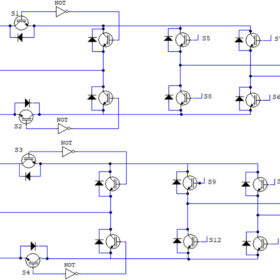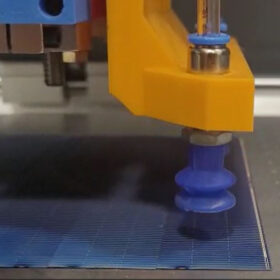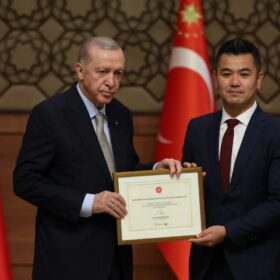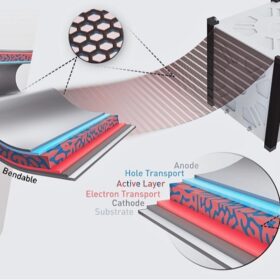Turkey’s solar capacity surpasses 21 GW
Turkey’s rapid rise in solar deployment has been largely attributed to the installation of unlicensed solar power plants for self consumption in the commercial and industrial sector.
Key takeaways from SolarEx Istanbul
The 17th edition of SolarEx Istanbul, which took place from April 10 to April 12, was the largest to date. As Turkey’s solar deployment increases, there was discussion on how to manage future installations, develop untapped domestic markets, and secure future investments.
Asymmetrical 49-level cascaded inverter for PV applications
Researchers in Iraq have designed a multi-level cascaded inverter that can purportedly produce high-quality sinusoidal output voltage and current waveforms, while reduing harmonic distortion. It uses the so-called phase disposition level-shifted pulse width modulation (PDLSPWM) control technique to operate the switches in the circuit “effectively.”
Trina debuts 5 MWh energy storage system
The Chinese manufacturer said its new utility-scale battery uses 314 Ah cells with a 15,000-cycle lifespan.
Water-based electrically conductive adhesives for shingled solar modules
Scientists in Turkey have conceived new solar module electrically conductive adhesives based on silver microflakes and optimized polymeric additives. The proposed adhesives were found to increase electrical conductivity, adhesion strength, and reliability under real-world operating conditions.
Astronergy to build $500 million solar cell factory in Turkey
Astronergy says it plans to invest $500 million in a solar cell factory in Turkey, expanding its presence beyond its existing 850 MW module assembly facility.
Turkish startup developing perovskite-organic tandem solar cell tech
Spacelis is developing lightweight, rollable space-grade perovskite-organic tandem solar PV technology targeting space and terrestrial portable energy applications.
Israel installs 900 MW of PV capacity in 2024
Recent data show Israel added 900 MW of solar PV capacity in 2024. The majority of the newly-added capacity stems from projects operating under merchant power purchase agreements (PPAs).
Scaling solar cell production efficiently with MES – Ensuring quality & cost-effectiveness
For solar cell manufacturers, a close eye on consistently high quality has never been more important. Emerging technologies and processes bring the opportunity for stronger performance, but the increasing complexity and delicacy that these require present new risks. In this pv magazine Webinar, we look how a Manufacturing Execution System (MES) can help bring visibility to these processes and ensure the fast and cost-effective ramp up of new PV technologies and production lines.
Offshore vs. ground-mounted PV
Researchers in Saudi Arabia have compared the performance of ground-mounted PV plants with that of off-shore solar facilities and have found that floating installations benefit from the cooling effect of the seawater.









